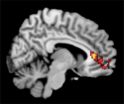The Lancet Psychiatry: Coping strategies therapy significantly improves dementia carers' mental health and quality of life
2014-11-19
(Press-News.org) A brief coping strategies therapy which provides stress relief and emotional support for people caring for relatives with dementia can reduce depression and anxiety and improve wellbeing at no extra cost to standard care, new research published in The Lancet Psychiatry suggests.
The study led by Gill Livingston, Professor of Psychiatry of Older People at University College London in the UK, found that family caregivers receiving the START (STrAtegies for RelaTives) programme were seven times less likely to develop clinically significant depression than those given usual care, with benefits lasting for at least 2 years.
Two-thirds of people with dementia live at home, with their family providing most of their care. There are around 670 000 of these family carers in the UK and more than 15 million in the USA [1]. However, about 40% of family carers develop clinical depression or anxiety, which typically leads to care breakdown, and results in individuals with dementia moving to a care home.
Livingston and colleagues randomly assigned 260 family carers who were free from depression at the start of the study to either the 8-session START programme (173 carers) or to usual care consisting of medical, psychological, and social services for the person with dementia (control; 87). START was delivered by non-clinically trained psychology graduates working on a one-to-one basis with family carers at their home to identify individual difficulties and implement coping strategies (eg, help with accessing emotional support and relaxation).
Assessments were made of depression and anxiety using the Hospital Anxiety and Depression Scale (HADS) and of cost-effectiveness over 2 years.
On average, carers in the START group reported a significant (2.58 point) improvement in HADS total score compared to the usual care group in both the short (8 months) and long term (24 months). Moreover, START was no more expensive than usual care, and showed the best value for money based on NICE cost effectiveness thresholds [2] (see table 4 page 7 and figure 2 page 8).
According to Professor Livingston, "Worldwide, there are an estimated 44 million people with dementia, and this figure is likely to double every 20 years. Too often people forget the substantial effect dementia has on family members caring for relatives with dementia. Policy frameworks assume that families will remain the main providers of their (unpaid) support. This new cost-neutral programme is an effective way to support carers and improve their mental health and quality of life and should be made widely available."*
Writing in a linked Comment, Sube Banerjee, Professor of Dementia at the University of Sussex, Brighton, UK, says, "the START intervention should be offered as individual therapy to all family carers of people with dementia as part of the support with a timely diagnosis. START should be a specified component of the diagnostic services for dementia (such as memory services) that are commissioned by Clinical Commissioning Groups throughout the UK."
INFORMATION:
NOTES TO EDITORS:
This study was funded by the National Institute for Health Research Health Technology Assessment programme 08/14/06.
* Quote direct from author and cannot be found in text of Article.
[1] http://www.alzheimers.org.uk/statistics and http://www.alz.org/downloads/Facts_Figures_2014.pdf
[2] NICE has a cost effectiveness threshold range of £20 000 to £30 000 per quality adjusted life year (QALY) gained. A QALY is a combined measure of quantity and quality of life.
ELSE PRESS RELEASES FROM THIS DATE:
2014-11-19
A new diagnostic technique -- resulting from monitoring thousands of courtship calls from songbirds -- can be used to safely map the human brain during complex neurosurgery, according to research from Neuroscientists at NYU Langone Medical Center and elsewhere.
The mapping process, first tested in zebra finches, involves gently placing a miniature electrical cooling device at different locations on a small region of the songbirds' brains. This slows down processing of complex neural behaviors, such as a birdsong or human speech.
In a report prepared for the Society ...
2014-11-19
DURHAM, N.C. -- Holiday shopping can be mentally exhausting for anyone. But a new Duke University study finds that older adults seem to need extra brainpower to make shopping decisions -- especially ones that rely on memory.
The study appearing Nov. 19 in the Journal of Neuroscience suggests that older shoppers use an additional brain area to remember competing consumer products and choose the better one.
"The study gives a bright picture, actually," said lead author Nichole Lighthall, a postdoctoral researcher in Roberto Cabeza's lab at Duke's Center for Cognitive ...
2014-11-19
LA JOLLA, CA--November 18, 2014--"Protein misfolding" diseases such as cystic fibrosis and Alzheimer's may be seriously exacerbated by the body's own response against that misfolding, according to a new study led by scientists at The Scripps Research Institute (TSRI).
The researchers examined patient cells and animal models of several diseases that feature chronic protein misfolding and found that in each case, a cellular defense system against protein misfolding, called the "heat shock response," was overactive. Reducing its activity lessened the signs of disease and ...
2014-11-19
Sleep is a critical period for memory consolidation, and most people don't get enough. Research has shown that even brief periods of sleep deprivation can lead to deficits in memory formation.
In a new study, published in the Journal of Neuroscience, a team led by scientists from the University of Pennsylvania found that a particular set of cells in a small region of the brain are responsible for memory problems after sleep loss. By selectively increasing levels of a signaling molecule in these cells, the researchers prevented mice from having memory deficits.
Robbert ...
2014-11-19
LOS ANGELES (STRICTLY EMBARGOED UNTIL 5 P.M. EST on NOV. 11, 2014) - Lou Gehrig's disease, also known as amyotrophic lateral sclerosis, or ALS, might damage muscle-controlling nerve cells in the brain earlier in the disease process than previously known, according to research from the Cedars-Sinai Board of Governors Regenerative Medicine Institute. The findings, published in the Nov. 12 Journal of Neuroscience, could shift researchers' attention from the spinal cord to the brain's motor cortex as the disease's initial point of dysfunction.
"In this study, we show the ...
2014-11-18
Home exercise can ease feelings of hopelessness in people with coronary heart disease, according to a small study presented at the American Heart Association's Scientific Sessions 2014.
Feeling hopeless can be dangerous because it can discourage people from taking healthful steps such as exercising or quitting smoking, said Susan L. Dunn, Ph.D., R.N., lead author of the study and a professor of nursing at Hope College in Holland, Michigan.
People with hopelessness may also suffer from depression, which is marked by a loss of interest in activities they normally enjoy.
"For ...
2014-11-18
A new trans-satellite wireless 12-lead ECG can identify the most severe type of heart attack swiftly and save significant time from ambulance to angioplasty, according to research presented at the American Heart Association's Scientific Sessions 2014.
An ECG measures the electrical activity of the heart and helps medical personnel determine if a person had an ST-elevation myocardial infarction (STEMI). Angioplasty, also known as percutaneous coronary intervention (PCI), is a procedure in which an inflatable balloon opens a blocked artery to restore blood flow to the heart.
During ...
2014-11-18
In a small study in Japan, people who stopped smoking didn't face increased death risk if they gained weight, according to research presented at the American Heart Association's Scientific Sessions 2014.
"Quitters had a significantly lower risk of death compared to smokers regardless of their weight change after they stopped smoking," said Hisako Tsuji, M.D., lead author of the study.
Researchers compared deaths from all causes in 1,305 Japanese adults who quit smoking to deaths among 2,803 Japanese smokers. Participants in both groups were 65 percent men, average age ...
2014-11-18
Using a smart phone app for education and feedback about heart-healthy behavior may decrease the risk for heart and blood vessel disease among young black women, researchers said in a pilot feasibility study presented at the American Heart Association's Scientific Sessions 2014.
"We need to raise awareness among women and their healthcare providers of gender and racial differences in cardiovascular disease," said Jo-Ann Eastwood, Ph.D., study lead author and associate professor at the University of California, Los Angeles School of Nursing. "Women are social by nature, ...
2014-11-18
Adults counseled on their genetic risk of coronary heart disease believe they have more control over their fate, according to research presented at the American Heart Association's Scientific Sessions 2014.
Researchers examined the impact of disclosing risk of 10-year heart disease with or without genetic risk information to 207 patients (48 percent male, average age 58) participating in Myocardial Infarction GENES (MI-GENES), a randomized controlled study.
The study's key elements included a risk score based on established risk factors and a genetic risk score based ...
LAST 30 PRESS RELEASES:
[Press-News.org] The Lancet Psychiatry: Coping strategies therapy significantly improves dementia carers' mental health and quality of life


